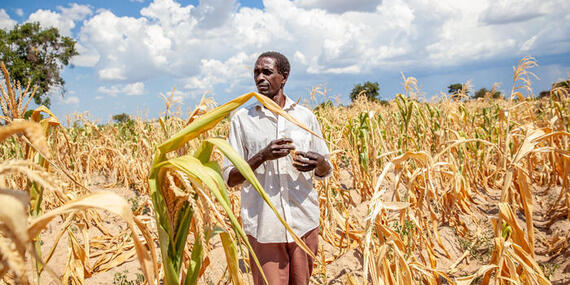Today's top news: Occupied Palestinian Territory, Southern Africa

Occupied Palestinian Territory
OCHA reports that since 7 October, more than 500 Palestinians – nearly a quarter of them children – have been killed in the West Bank, including East Jerusalem.
The vast majority were killed by Israeli forces, with 10 others killed by Israeli settlers. During the same period, more than 5,100 Palestinians were injured in these areas.
OCHA has also recorded more than 940 attacks by Israeli settlers against Palestinians in the West Bank, including East Jerusalem, since 7 October.
Over the past nearly eight months in those areas, Israeli authorities have also demolished, confiscated or forced the self-demolition of more than 900 Palestinian structures – nearly 40 per cent of which were inhabited homes – displacing more than 2,000 people.
Meanwhile in Gaza, our colleagues from the United Nations Relief and Works Agency for Palestine Refugees in the Near East (UNRWA) say the ongoing Israeli military operation in Rafah is directly impacting the ability of aid agencies to bring critical humanitarian supplies into Gaza, as well as the ability to rotate critical humanitarian staff.
UNRWA has maintained a presence in Rafah, with a focus on continuing missions to Kerem Shalom to retrieve fuel and aid commodities.
In the five-day period between 28 May and 1 June, UNRWA says only 232 trucks of humanitarian aid entered via Kerem Shalom – a significant reduction compared to before the Rafah military operation.
Southern Africa
The UN and partners warned today in a joint statement that millions of people in the Southern African region could be pushed into acute hunger during the next lean season, which runs from October to February.
The region faces a severe rainfall deficit due to the El Niño phenomenon, which started globally in July 2023 and led to the driest month of February in 100 years, with only 20 per cent of the usual rainfall expected for this period received.
Even before the drought, the levels of food insecurity and humanitarian needs were high in the region, driven by socio-economic challenges, high food prices and the compounding impacts of the climate crisis.
The window of opportunity to avert a large-scale humanitarian crisis is rapidly closing, as communities face imminent harvest failures. It is urgent to provide humanitarian assistance and support communities to recover and build resilience for the future.
